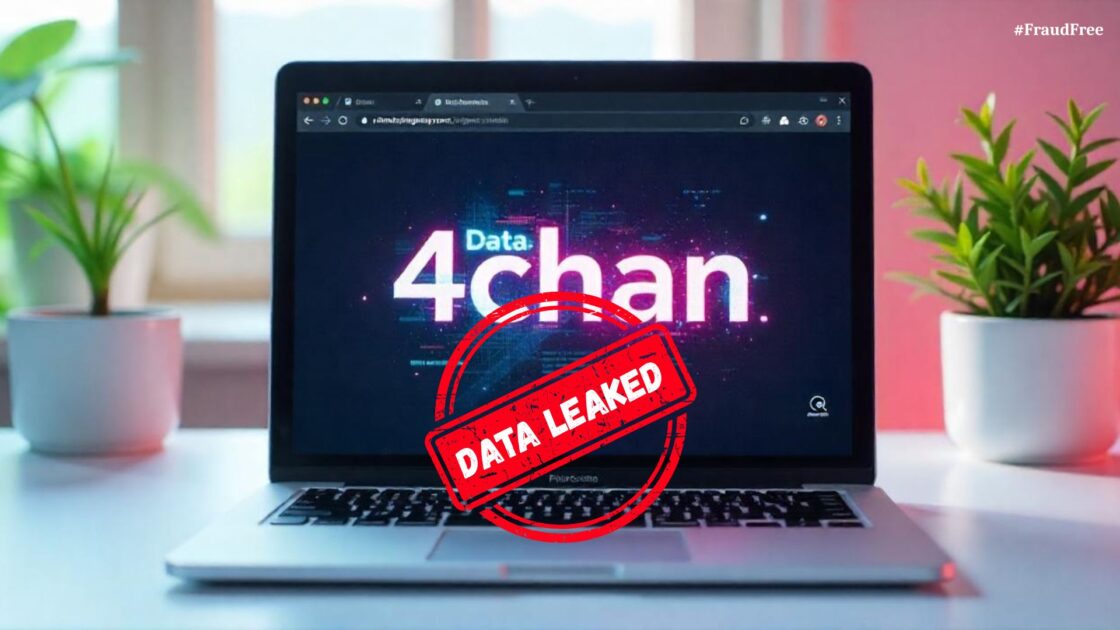Let’s guess, you’ve taken your business online, things are running smoothly, and you think your site is “secure enough.”
Maybe your developer told you, “Don’t worry, boss, we’ve got SSL and all that good stuff.”
But what if I told you that’s exactly what the folks at 4chan probably thought, too… until it all went up in flames?
“Wait, 4chan? Isn’t that the site with all the weird memes and trolls?”
Yep, the very same. But whether or not you’ve ever visited it, this story is one you need to hear, especially if you manage any website, forum, or online platform.
Because what happened there could easily happen to you.
What is 4chan?
For those unfamiliar, 4chan is one of the internet’s most infamous online forums.
It’s been around since 2003 and has played host to just about every type of discussion, anime, politics, hacking, conspiracy theories, memes, you name it.
It’s anonymous, fast-moving, and, at times, chaotic.
Think of it like the Wild West of the internet. It’s where trends are born, chaos erupts, and hackers often lurk in plain sight.
Over the years, 4chan has also been linked to many controversial moments, both online and off.
And now, the very foundation of that platform has been laid bare.
The Breach: What Got Exposed?
Earlier this month, hackers dumped a massive amount of 4chan’s internal data on the dark web. We’re talking about tens of gigabytes of sensitive content:
- Source code of the site
- Moderator logs
- Admin discussions
- IPs and internal workflows
Basically, the blueprint of how 4chan runs behind the curtain.
According to cybersecurity experts, this isn’t just a leak, it’s a total undressing of the platform. And while some might argue that “it’s just 4chan,” the truth is far more alarming.
Because this isn’t just about one website getting hacked, it’s about what these hacks lead to.
From Hacks to Headaches: How It Spirals into Bigger Cyber Frauds
Now you might be thinking —
“Okay, so some source code and moderator tools got leaked… but how does that affect me or turn into a big fraud?”
Oh, buckle up.
These kinds of breaches don’t just stay contained. Once hackers get inside a system, it’s like they’ve found the blueprint of a house, and now they know exactly where the weak points are.
Worse? That blueprint is now public.
Let’s break down what can happen next:
- Identity Exposure: If internal emails, passwords, or even user payment info get out, it’s open season for phishing, impersonation, or straight-up scams.
- Reusing Weak Links: Many small business owners and even moderators use the same passwords across platforms. Once leaked, hackers try them on other sites. Suddenly, it’s not just your forum at risk, it’s your email, your server, even your payment gateway.
- Fake Pages, Real Losses: With access to the backend structure, fraudsters can create fake replicas of your site and start tricking your customers into handing over their personal or financial details.
- Social Engineering: Hackers don’t always brute-force their way in. Often, they use the data they get to craft scarily convincing messages or phone calls, pretending to be you or your staff. And yes, people fall for it.
- Bot Attacks & Takeovers: Once they understand how your site works from the inside, they can flood it with spam, shut down services, or even hijack admin access.
Basically, what looks like a geeky backend breach today can quickly become a customer data nightmare, a reputation crisis, or even a legal issue tomorrow.
And here’s the kicker: these frauds don’t always show up immediately.
They’re like slow-moving time bombs. You might discover the real damage months later, when users start complaining, or when someone logs in as you and transfers out your funds.
The Bigger Picture
The 4chan incident is just the latest reminder that no one’s immune, not even platforms with decades of online legacy.
If anything, it proves that:
- Relying only on “basic” security is not enough
- Transparency in backend tools can become a liability
- Hackers aren’t always looking for financial data — sometimes, control and disruption are the real prizes
This isn’t meant to scare you. Okay… maybe just a little. But mostly, it’s a wake-up call.
So What Can You Do?
You don’t need to be a cybersecurity ninja, but a few common-sense steps can go a long way:
- Regularly update passwords and avoid reusing them
- Enable 2FA (two-factor authentication) wherever possible
- Keep your backend tools private and access-restricted
- Use reliable hosting and cloud service providers
- Regularly back up data and monitor for irregular activity
- Monitor your domain for clones or phishing sites impersonating you
And finally, take this stuff seriously, even if it doesn’t sound exciting.
Security Might Be Boring, But So Is Losing Everything
Look, security might seem to be an extra task & boring
No one wants to sit through a meeting about firewalls and access logs.
But you know what’s even more boring? Spending your weekend explaining to 40 angry customers why their data was leaked.
Don’t wait until your name pops up in a headline.
Take action while you still can, and treat security as the non-negotiable part of running anything online.
Even 4chan wasn’t safe. What makes you think you are?







